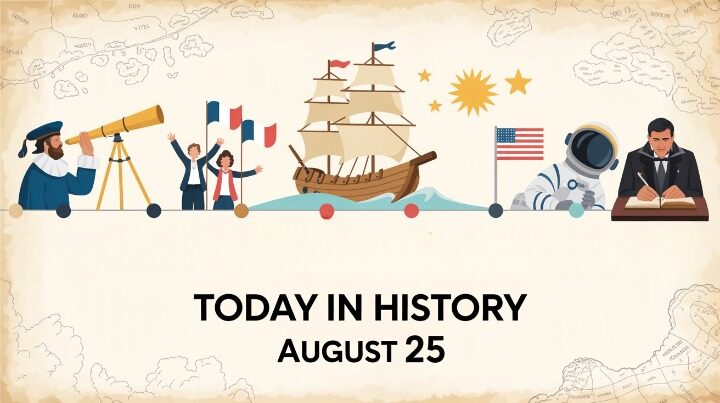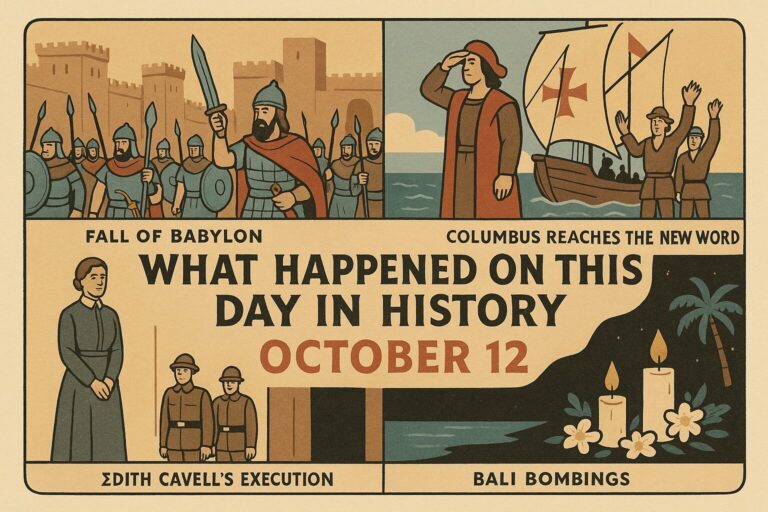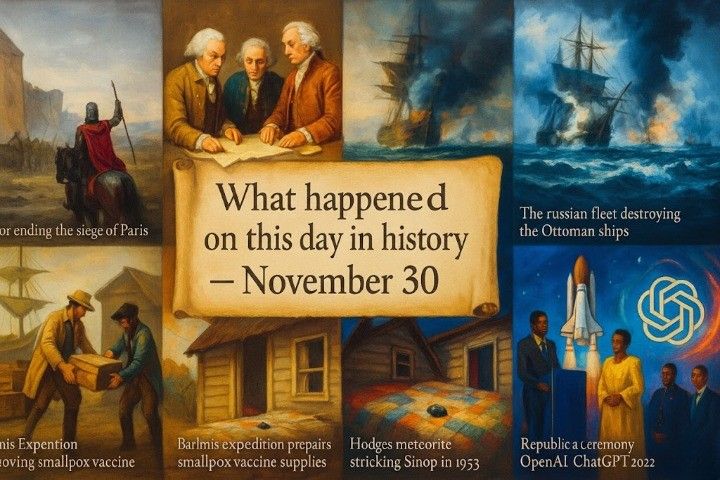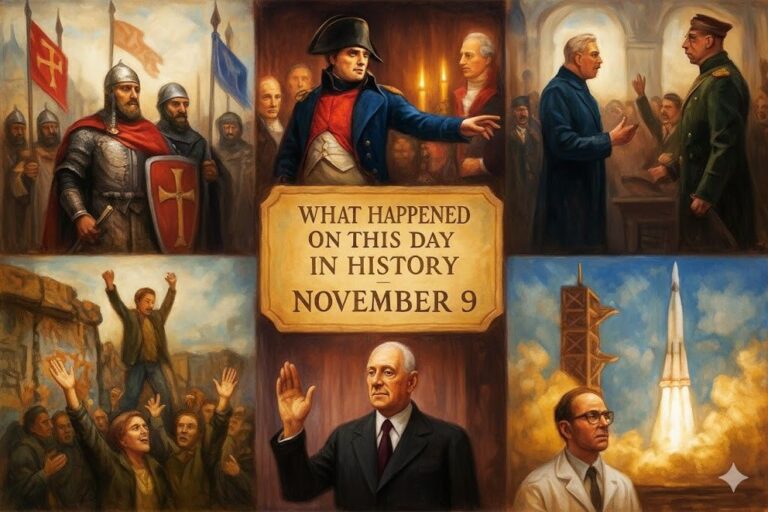August 25 has witnessed pivotal moments, from philosophical legacies to great voyages, wars, and liberations. Here are some of the most important events that happened on this day in history.
325 AD – Doctrine of the Holy Trinity Established
On this day in 325 AD, the Council of Nicaea concluded after weeks of theological debates. It was here that the doctrine of the Holy Trinity was formally established, affirming the unity of the Father, the Son, and the Holy Spirit. This decision shaped Christian belief and doctrine for centuries to follow, creating a foundation that still defines much of the faith today.
1530 – Birth of Ivan the Terrible
On this day in 1530, Ivan IV of Russia, later remembered as Ivan the Terrible, was born in Moscow. He became the first ruler to take the title of Tsar, centralizing power and expanding Russia’s territories. While his reign brought great achievements, it was also marked by cruelty, fear, and violent repression. His complex legacy still sparks debate among historians.
1609 – Galileo Demonstrates His Telescope
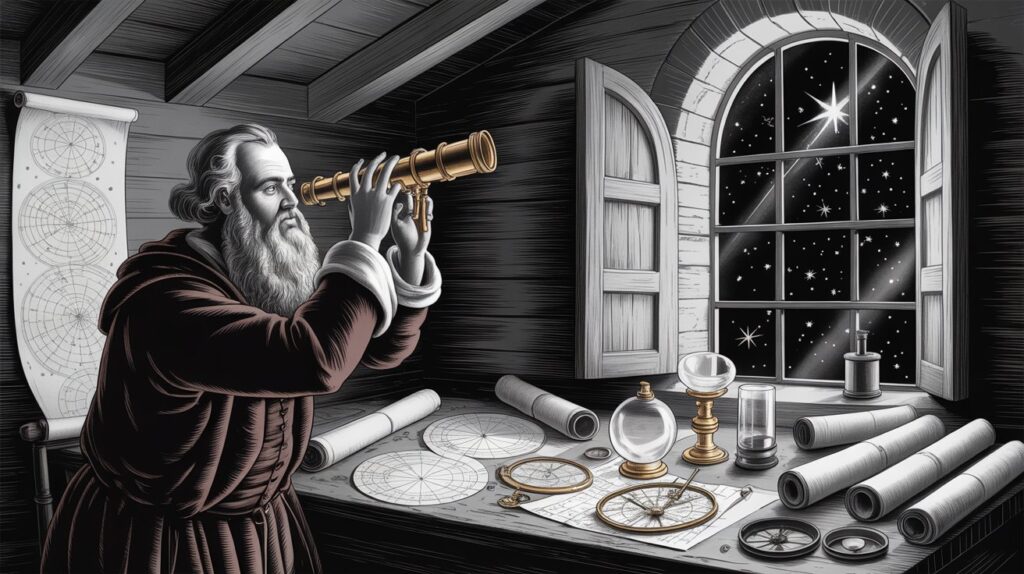
On this day in 1609, Italian astronomer Galileo Galilei presented one of his earliest telescopes to the Venetian Senate. The device, capable of magnifying objects twenty times, opened an entirely new window to the skies. Soon after, Galileo would discover the craters of the Moon and the moons of Jupiter, transforming humanity’s understanding of the universe.
1768 – Captain James Cook Sets Sail
On this day in 1768, Captain James Cook set out from Plymouth, England, on his first great voyage aboard the HMS Endeavour. His mission was to chart the Pacific and record astronomical observations, but the journey also brought new maps, scientific discoveries, and encounters with distant cultures. Cook’s expedition left a lasting mark on global exploration and European knowledge of the world.
1814 – Library of Congress Destroyed
In 1814, during the War of 1812, British troops marched into Washington, D.C. and set fire to government buildings. Among the losses was the Library of Congress, where thousands of books and priceless manuscripts were reduced to ashes. Though devastating at the time, the library would later be rebuilt and expanded, becoming one of the world’s greatest collections of knowledge.
1825 – Uruguay Declares Independence
On this day in 1825, Uruguay declared its independence from Brazil, sparking the Cisplatine War that would determine its fate. Eventually recognized as the Oriental Republic of Uruguay, the country served as a buffer between Argentina and Brazil. Its independence marked the birth of a small yet resilient nation in South America’s turbulent 19th century.
1944 – Liberation of Paris
On this day in 1944, after years of German occupation, Paris was finally liberated by Allied forces and French resistance fighters. Crowds poured into the streets in celebration as the city regained its freedom after four long years of Nazi control. The liberation of Paris was not just a military victory but also a powerful symbol of hope during World War II.
1991 – Belarus Declares Independence
In 1991, as the Soviet Union neared collapse, Belarus declared independence, joining other republics breaking away from Moscow’s control. The move marked the start of Belarus’s new era as a sovereign nation. Though its path since has been shaped by politics and challenges, the date remains a milestone in its national history.
2012 – Death of Neil Armstrong
On August 25, 2012, Neil Armstrong, the first man to set foot on the Moon, passed away at the age of 82. His historic words, “That’s one small step for man, one giant leap for mankind,” became etched in human memory. Armstrong’s quiet life after NASA never diminished his legacy as a symbol of exploration, courage, and human achievement.
1918 – Birth of Leonard Bernstein
On this day in 1918, Leonard Bernstein, one of America’s greatest composers and conductors, was born. He rose to international fame for his brilliant conducting and for composing West Side Story, a musical that still resonates today. Beyond music, Bernstein became a cultural ambassador, bringing classical compositions to wider audiences through television and live performances.
1900 – Death of Friedrich Nietzsche
On this day in 1900, German philosopher Friedrich Nietzsche passed away in Weimar, Germany, at the age of 55. Known for works like Thus Spoke Zarathustra and Beyond Good and Evil, Nietzsche challenged traditional morality and religion with radical ideas about power, truth, and human potential.
His famous phrase, “God is dead,” reflected his belief that modern society had moved beyond traditional religious values. Though misunderstood in his lifetime, Nietzsche’s writings went on to shape philosophy, psychology, literature, and modern culture.
Final Thoughts
That was Today in History: August 25 — a day marked by discoveries, bold leaders, tragic losses, and cultural triumphs.
Which of these events do you think left the greatest mark on history?
FAQs About August 25 – Today in History
What is celebrated on 25th August?
August 25 is celebrated as Independence Day in Uruguay (since 1825). In the United States, it’s also National Park Service Founding Day (1916).
Why is August 25 important in history?
It’s tied to pivotal moments like Galileo’s 1609 telescope demonstration, Uruguay’s 1825 independence, and the 1944 liberation of Paris in World War II.
What feast day is 25th August?
In the Christian calendar, August 25 is the feast day of Saint Louis IX, King of France.
Why is it a holiday on August 25th?
It’s a public holiday in Uruguay to mark the nation’s declaration of independence.
What is on 25 and 26 August?
August 25 features events such as Uruguay’s Independence Day and key historical anniversaries; August 26 is observed in the U.S. as Women’s Equality Day.
Is Ganesh Chaturthi a holiday on August 25?
Dates vary each year by the Hindu lunar calendar; it doesn’t always fall on August 25, but when it does, many Indian states observe a public holiday.
What astrology sign is August 25th?
People born on August 25 are Virgo.
What is the personality of someone born on August 25th?
Typical Virgo traits: analytical, detail-oriented, practical, reliable, and service-minded.
Which famous people were born on August 25?
Notable births include Leonard Bernstein (1918). Other well-known figures with this birthday include Sean Connery, Gene Simmons, Tim Burton, Blake Lively, and Elvis Costello.
Which famous people died on August 25?
Friedrich Nietzsche (1900), the German philosopher of Thus Spoke Zarathustra, and Neil Armstrong (2012), the first person to walk on the Moon.
What happened on 25 August?
Highlights include the Council of Nicaea’s conclusion (325), Galileo’s telescope demo (1609), Captain Cook’s first voyage departure (1768), Uruguay’s independence (1825), and the liberation of Paris (1944).
What’s an interesting fact for today?
On August 25, Galileo showed a telescope that magnified objects 20×, helping launch the scientific revolution in astronomy.
